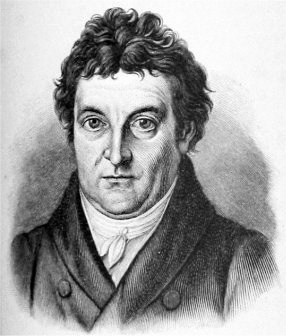“Os teus atos, e não os teus conhecimentos, é que determinam o teu valor.”
citado em "O diário de Marise: a vida real de uma garota de programa" - Página 146, Vanessa de Oliveira - Matrix Editora, 2006 - 414 páginas
Johann Gottlieb Fichte foi um filósofo alemão .
Foi um dos criadores do movimento filosófico conhecido como idealismo alemão, que desenvolveu a partir dos escritos teóricos e éticos de Immanuel Kant. Sua obra é frequentemente considerada como uma ponte entre as ideias de Kant e as de Hegel. Assim como Descartes e Kant, interessou-se pelo problema da subjectividade e da consciência. Fichte também escreveu trabalhos de filosofia política e é considerado como um dos primeiros pensadores do pangermanismo.

“Os teus atos, e não os teus conhecimentos, é que determinam o teu valor.”
citado em "O diário de Marise: a vida real de uma garota de programa" - Página 146, Vanessa de Oliveira - Matrix Editora, 2006 - 414 páginas
Fonte: The Science of Rights 1796, p. 193
Fonte: The Science of Rights 1796, P. 173-175
Fonte: The Science of Rights 1796, P. 145
Fonte: The Science of Rights 1796, P. 132
Fonte: The Science of Rights 1796, P. 119
Fonte: The Science of Rights 1796, P. 108
Fonte: The Science of Rights 1796, P. 77
Fonte: The Science of Rights 1796, P. 63
Fonte: The Science of Rights 1796, P. 23-24
Fonte: The Science of Rights 1796, P. 7-8
“Whether there can be love without esteem?”
Oh yes, thou dear, pure one! Love is of many kinds. Rousseau proves that by his reasoning and still better by his example. La pauvre Maman and Madame N____ love in very different fashions. But I believe there are many kinds of love which do not appear in Rousseau’s life. You are very right in saying that no true and enduring love can exist without cordial esteem; that every other draws regret after it, and is unworthy of any noble soul. One word about pietism. Pietists place religion chiefly in externals; in acts of worship performed mechanically, without aim, as bond-service to god; in orthodoxy of opinion; and they have this among other characteristic marks, that they give themselves more solicitude about other’s piety than their own. It is not right to hate these men,-we should hate no one, but to me they are very contemptible, for their character implies the most deplorable emptiness of the head, and the most sorrowful perversion of the heart. Such my dear friend never can be; she cannot become such, even were it possible-which it is not-that her character were perverted; she can never become such, her nature has too much reality in it. You trust in Providence, your anticipation of a future life, are wise, and Christian. I hope, I may venture to speak of myself, that no one will take me to be a pietist or stiff formalist, but I know no feeling more thoroughly interwoven with my soul than these are.
Johann Fichte Letter to Johanna Rahn from Johann Gottlieb Fichte's popular works: Memoir and The Nature of the Scholar https://archive.org/stream/johanngottlieb00fichuoft#page/14/mode/1up
Jane Sinnett, trans 1846 p. 71
The Vocation of Man (1800), Faith